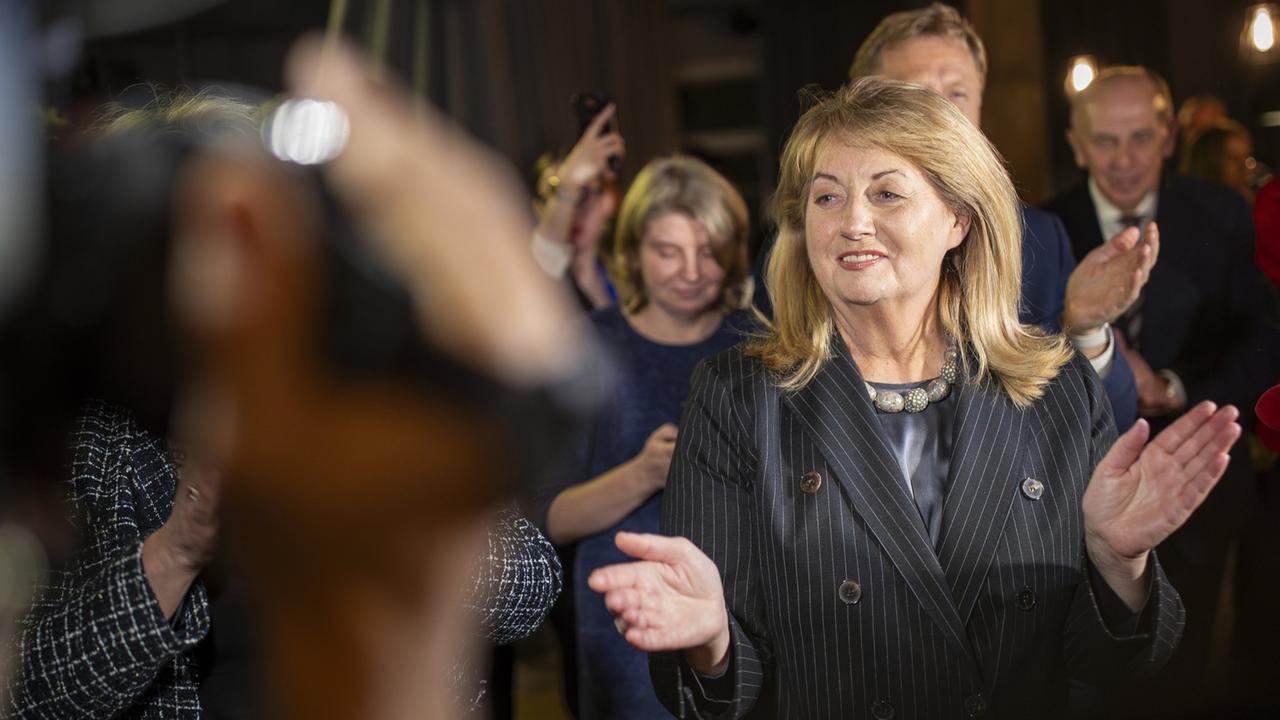In Lithuania there are signs of a change of government: in the parliamentary elections, the opposition is ahead after the counting. But there will be a second round of voting. The Social Democrats are aiming for a center-left coalition.
In the German NATO partner country Lithuania there are signs of a change of power in the first round of parliamentary elections. According to preliminary results, the Social Democrats can prevail. After counting almost all electoral districts, the previously opposition force received 19.5 percent of the votes, as the electoral commission in Vilnius announced last night. The preliminary final result is expected later today.
In second place with 17.8 percent is Prime Minister Ingrida Simonyte's conservative Fatherland Union, which surpassed Nemunas' populist Dawn Party (15.0 percent), which ran for the election for the first time, in the final spurt.
The voting results confirmed pre-election polls that suggested a possible change of government in Lithuania. Voter turnout was 52.1 percent – higher than in the election four years ago.
Social Democrats are aiming for a center-left coalition
Sunday's vote was the first of two rounds: voters initially decided on 70 seats in parliament using proportional representation. In two weeks they will then vote on 71 direct mandates in the Seimas parliament.
Coalitions are therefore unlikely to be discussed until after the election. The Social Democrats and the center-left Party for Lithuania (9.3 percent) have already announced that they want to form a government. To do this, however, they would still need at least one other partner.
“I think it will be a coalition with two left-wing parties,” said Social Democrats leader Vilija Blinkeviciute. She named the Peasants' Party, the Greens and the “For Lithuania” party as possible partners. “I think our voters, our people, have said they want some changes,” she said, pointing to income, housing, health care and education as key concerns. If Blinkeviciute succeeds in forming a government, she is expected to maintain Lithuania's tough stance against Russia and high defense spending.
Exposed location on NATO's eastern flank
Polling stations opened at 7 a.m. local time and closed at 8 p.m. The Baltic state with its 2.9 million inhabitants has a mixed electoral system in which half of the parliament is elected using proportional representation with a five percent threshold. The other half is elected via direct mandates. If no candidate receives more than 50 percent of the votes in their constituency, there will be a runoff election in two weeks.
Prime Minister Simonyte lost the presidential election in May against incumbent Gitanas Nauseda. During the election campaign, the Social Democrats promised to combat the growing gap between rich and poor. To do this, they want to raise taxes for wealthier Lithuanians in order to finance additional spending on health and social services.
Against the backdrop of the war in Ukraine, national security is also an important issue in Lithuania, which is part of the eastern flank of NATO and the European Union and borders the Russian exclave of Kaliningrad and the Russian ally Belarus. Three-quarters of Lithuanians believe Russia could attack their country in the near future, a poll showed in May. To protect Lithuania, the German Bundeswehr is establishing its largest permanent foreign presence there to date.




